Forever our girl: How Paula Abdul became and remains a queer icon
After more than 40 years in the entertainment industry, Paula Abdul isn't slowing down, especially in her support of the LGBTQ+ community.
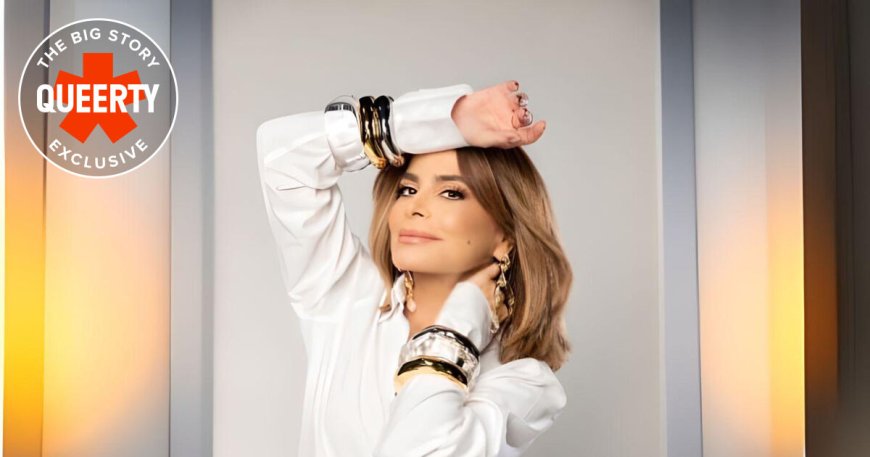
When asked to name the one queer person who’s had the greatest influence in her life, Paula Abdul doesn’t hesitate: “Joe Tremaine, one of my first dance teachers.”
Tremaine has been teaching dance for decades and has worked with some of the industry’s most iconic names—from Gene Kelly to Louis Armstrong, Liza Minnelli to Diana Ross, Cher, and, of course, Abdul herself.
She is talking to me via Zoom from her Los Angeles home ahead of being honored at the 2024 Queerties Awards with the Straight Up Ally Award for her decades of contributions to the LGBTQ+ community. Her chihuahua Batman sits in her lap. (Batman occasionally places his tiny paw on the keyboard, accidentally muting the mic. Bad Batman!)
In the 1970s, Tremaine opened the Joe Tremaine Dance Center in Southern California. That’s where Abdul first connected with him. At the time, she was just a scrappy, 5-foot-tall teenager with big dreams and a passion for performing.
“I used to be a scholarship kid. Cleaning, doing chores to earn my classes,” she recalls. “During that time, he became like a father figure, like a big brother, like an uncle to me. And very, very important in my life. Second to my dad.”
In addition to fostering her love of dance, Tremaine introduced 15-year-old Abdul to a community of people she had never met before.
“I learned about the gay community through him,” she says. “It all started with him.”
Little did either of them know then, but within a few years of entering each other’s lives, Abdul would go on to become one of the biggest pop stars of her generation with a massive gay following, then use her platform to ring the alarm about a crisis happening within Tremaine’s community.
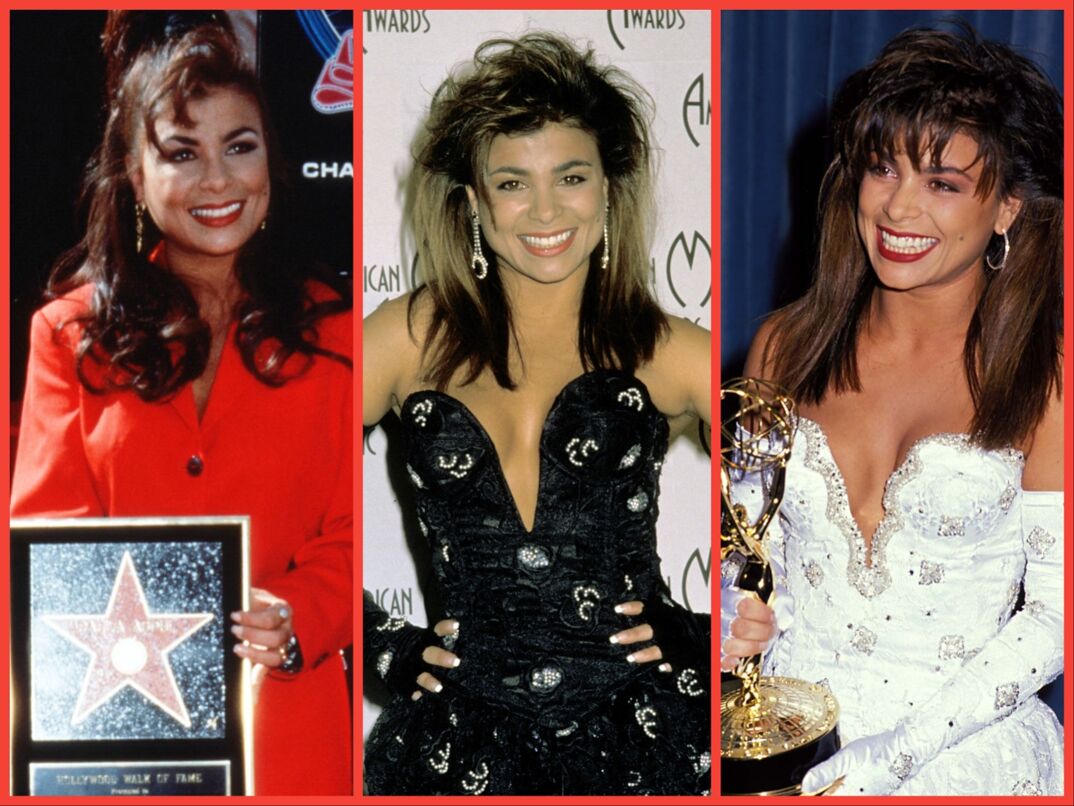
In 1992, during the height of the HIV/AIDS crisis, Abdul, then a bonafide superstar, appeared in Time Out: The Truth About HIV, AIDS and You, a music-filled PSA geared toward educating people about safe sex practices and curbing the spread of HIV.
Doing so, however, came with risks.
Though she was a global celebrity at that point, she technically was still in the early stages of her career, having just released her sophomore album, Spellbound, one year earlier. Society was still incredibly homophobic. And HIV/AIDS was still highly stigmatized.
None of this stopped Abdul from speaking out.
“I never questioned being outspoken and using my platform to be an ally,” she recalls. “I was surrounded by the gay community. They were part of my extended family. And I never looked at it any differently.”
She continues, “It was heartbreaking for me to be around people that were like my brothers, like my nephews, you know? People that I considered my family were afraid and dying. So many of my dearest friends felt alone and felt like they couldn’t talk to anybody about it.”
A year later, in 1993, Abdul co-hosted the TV special In a New Light ’93, a follow-up to the PSA, alongside her friend Arsenio Hall. The program aimed to both educate and entertain viewers.
It included an impressive roster of queer celebrities (though not all were publicly out at the time), including Elton John, Melissa Etheridge, Barry Manilow, Lily Tomlin, and the late musician and activist Michael Callen, to name a few.
“I’ve got to give a lot of respect to my management at the time and my record label for allowing me to be vocal,” she adds. “There was never a question as to whether I should or shouldn’t [participate].”
“No one ever told me that this could possibly hurt your career. I just never even looked at it that way.”
Abdul uses the word “backwards” to describe her massive success.
After studying with Tremaine in the late 1970s, she made a name for herself in the early 1980s as the head choreographer for the NBA’s Laker Girls before eventually connecting with the Jacksons, who noticed her during a Los Angeles Lakers game.
She ended up choreographing their 1984 video “Torture,” which led her to work with Janet Jackson on her “What Have You Done for Me Lately,” “Nasty,” “When I Think of You,” and “Control” videos, all released in 1986. Some of the other artists Abdul collaborated with during this time were George Michael, Kate Bush, Duran Duran, and the California Raisins.
But dance wasn’t the only thing Abdul had a passion for. In 1987, she used her own money to record a singing demo that attracted the attention of executives at the newly formed Virgin Records America.
“No one else had entered their singing career as a famous choreographer before,” she recalls. “So I started below the line in production. It was just a whole new experience, all the way around, for the record company as well.”
A year later, in the summer of 1988, she released her debut album, Forever Your Girl. Now considered one of the defining pop albums of its time, the record struggled to find an audience when it initially came out.
The first two singles, “Knocked Out” and “The Way That You Love Me,” didn’t make much impact on the charts, and the third single, “Straight Up,” was Virgin’s last-ditch effort to save Forever Your Girl, which execs were ready to declare a flop.
“It was crazy. I knew that song was uber special, even when the label didn’t believe in it at all.”Paula Abdul on the success of “Straight Up”
Virgin was in the process of reorganizing the label’s talent roster, and Abdul’s name was on the chopping block when radio stations started to pick up the song. Soon, it was climbing the Billboard Hot 100 chart, where it eventually reached No. 1 and held the top spot for three consecutive weeks. In the end, “Straight Up” sold over 1 million copies worldwide.
“It was crazy,” she remembers. “I knew that song was uber special, even when the label didn’t believe in it at all.”
With a surprise hit single now on her hands, Abdul needed a music video ASAP. In January 1989, she enlisted David Fincher to direct and worked on the choreography herself. It was quickly produced and shipped off to MTV, where it went into heavy rotation.
Over the next six months, three more singles and music videos would be released from Forever Your Girl — the album’s title track, “Cold Hearted” and “Opposites Attract” — all of which would reach number one, making Abdul the first female artist in music history to score four number-ones from a debut album.
In the end, Forever Your Girl sold over 7 million copies worldwide. Record execs had taken a chance on a below-the-line choreographer, and it had paid off.
Abdul’s success would continue a year later with her remix album Shut Up And Dance, which featured dance remixes from her debut album and sold over 1 million copies worldwide. The album was tailor-made for gay clubs and still holds up today.
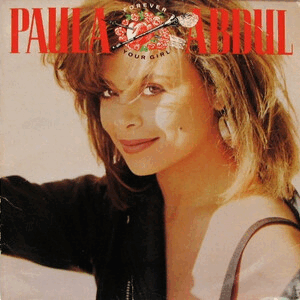
“I love that album because it breathed a whole new life into my songs,” she says. “I was working with the top of the top, you know? Shep Pettibone and all these great people. And then being able to go around the world, and be in different clubs, and see people go crazy on the dance floor. That was a whole separate thing for me.”
Shut Up And Dance was soon followed by her sophomore effort, Spellbound, in 1991. The album peaked at number one on the Billboard 200 and spawned another string of hits, including “Rush Rush,” “The Promise of a New Day,” “Blowing Kisses in the Wind,” “Vibeology,” and “Will You Marry Me?”
“Dancers really gravitated on my second album to ‘Vibeology.’ To this day, dancers still say that’s their jam,” she recalls. “I love the growth of my second album and the people that I worked with … It seems like it was yesterday, but it’s decades ago.”
Sadly, at the same time her career was taking off, so was the number of people contracting HIV and succumbing to AIDS. In 1991 alone, nearly 30,000 people in the United States, the vast majority of whom were men ages 25 to 44, had died of complications from the virus. By 1992, AIDS became the number one cause of death for men ages 25 to 44 in the United States. And by 1994, it became the leading cause of death for all Americans ages 25 to 44, according to the CDC and the New York Times.
Many of the dancers, musicians, and other artists Abdul worked with were among those affected. Seeing her peers and close friends suffer inspired her to use her platform to raise awareness, promote acceptance, and save lives.
“The incredible dancers and friends and extended family that I lost throughout the years … ,” she pauses, shaken by the memories, to collect her thoughts. “Being able to be a support and be an ally, and to help raise awareness, and to help promote acceptance and everything like that. I mean, my whole life has been touched by the queer community.”
In addition to recording PSAs about safe sex practices and HIV/AIDS geared toward both queer and straight audiences, she also partnered with the Elizabeth Glaser Pediatric AIDS Foundation to raise awareness that the virus wasn’t just a “gay disease,” as it had first been branded by conservative politicians and the media, but that it impacted people across all communities, identities, and age groups.
In 1995, when the time came for her to release her third album, Head Over Heels, Abdul was deeply entrenched in the cause. The record’s first single, “My Love Is For Real,” was a Middle Eastern–inspired dance track that featured vocals from Israeli singer Ofra Haza.
“I collaborated with, at that time, Israel’s biggest pop star, Ofra Haza, who is another beautiful human being that contracted AIDS and was too afraid to talk about it,” she recalls.
Haza’s HIV status was not publicly reported until after her death in the year 2000. The 42-year-old singer kept her status hidden even from the Tel Aviv hospital workers when she first checked into the emergency room two weeks prior to her passing.
“We lost an angel,” Abdul laments, “and an angel with a voice, too.”
As a single, “My Love Is For Real” proved to be only a moderate chart success compared to Abdul’s earlier releases, though it remains one of her personal favorites from her catalog.
“What was really exciting for me about the song is that nobody in pop music had ever used Middle Eastern sounds like that before,” she remembers. “I was a little bit ahead of my time. It wasn’t until much later that Sting came out with ‘Desert Rose,’ and he was also using the influence of Middle Eastern music. I think when I released [‘My Love Is For Real’], people weren’t ready for that sound.”
Meanwhile, the album’s second single, “Crazy Cool,” became the most controversial of her career.
The song itself wasn’t the issue. It was the music video that was too hot for MTV. It depicted her dancing seductively with a cane and pouring a bottle of champagne over herself while riding a mechanical bull. The network refused to play the original version until a cleaner version was cut.
Years later, Abdul can’t help but laugh at its absurdity, especially when considering the far more risque music videos artists are releasing today.
“Can you believe it?” she chuckles. “I was banned because I was on a mechanical bull, opened a champagne bottle, and shook it. I also pretended to play one of Prince’s guitars that he loaned me and danced on a pole.”
“They were like, ‘Forever your girl next door cannot be looked at this way!’ “
Speaking of artists today, Abdul continues to provide inspiration and encouragement to younger generations of talent.
Much like Tremaine was to her at age 15, she has served as a teacher, mentor, and friend to some of the biggest musical acts of the last 20 years, including queer icons like Adam Lambert, Fletcher, Adore Delano, and David Archuleta, who she first met in 2008 when he competed on American Idol at age 16.
“He is the sweetest and most charming,” she says. “He is exactly as he is, you know? There’s no mistake about it. He is such a gifted and amazing guy.”
It’s clear Abdul adores Archuleta. And the feeling is mutual.
“Paula is a cheerleader for other artists,” he tells Queerty, adding that when he was on American Idol, “she always treated us as peers, rooted for us, gave us advice that was encouraging and hopeful, and would make sure we were OK.”
“She did all this behind the scenes when the rest of the world wasn’t watching, and the TV cameras weren’t on,” says Archuleta. “I think that speaks volumes of the kind of person Paula has always been. She loves and cares about people.”
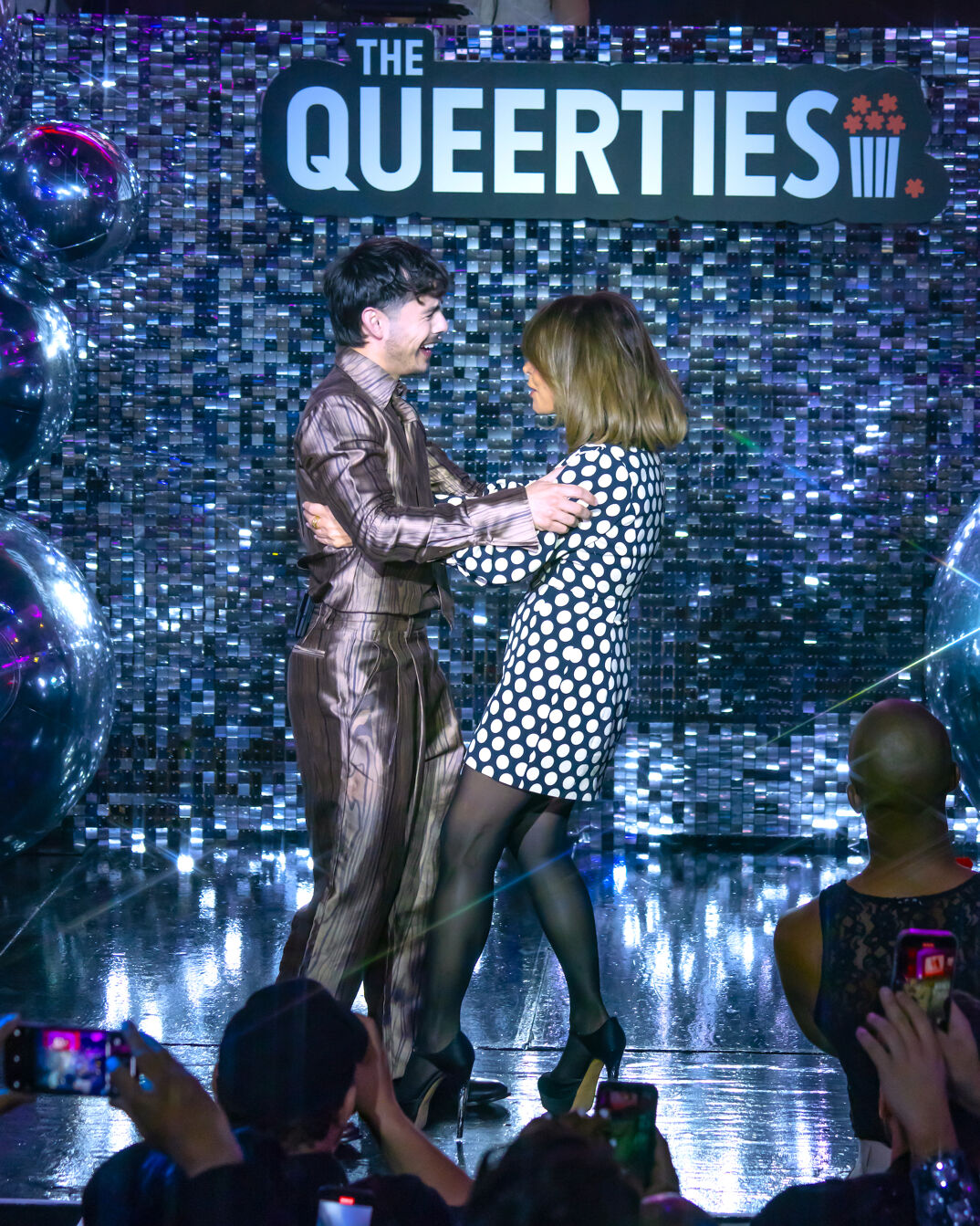
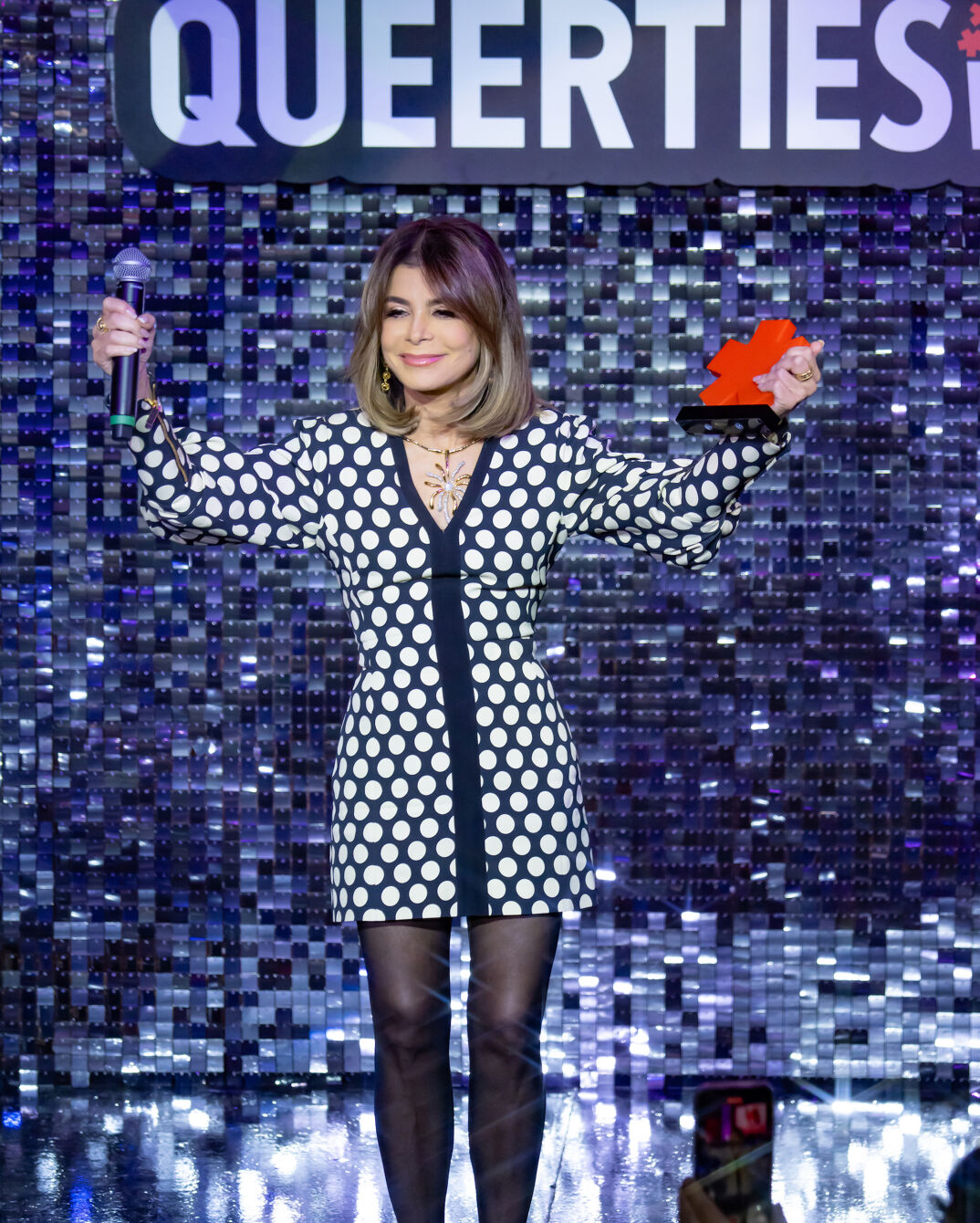
The energy inside the room at the 2024 Queerties Awards on March 12 in Hollywood was electric. The venue, packed with LGBTQ+ glitterati, included special honorees Rosie O’Donnell and Trace Lysette, Drag Race stars like Sasha Colby, Alaska, Raja, and Bob the Drag Queen, as well as stylish celebs and influencers like Matt Bernstein, Johnny Sibilly, and Frankie Grande. Trailblazer and herstory-maker Jinkx Monsoon served as mistress of ceremonies.
Toward the evening’s end, Archuleta took the stage to perform a medley of Abdul’s greatest hits, and she once again had the opportunity to cheer him on from the wings of the theater, just as she had at the beginning of his career 15 years earlier. Afterward, he presented her with the Straight Up Ally Award.
“We all love Paula, and it was such an honor to be able to return the favor and show love and support for her as she received her Straight Up Ally Award at the Queerties,” Archuleta tells Queerty. “It was fun learning her songs and choreography [and] to pay tribute to the incredible legend that she is.”
“I’ve been fortunate to have been embraced by such an incredible community,” Abdul says of her dedicated queer fanbase, “and to be able to work with the gay community and have so many magnificent gems touch my life.”
And as being to others what Tremaine was to her, Abdul says, “It’s been an amazing feeling.”
Watch Abdul — who is preparing to hit the road with New Kids On The Block for The Magic Summer 2024 Tour in June (just in time for Pride!) — accept the Straight Up Ally Award at the 2024 Queerties Awards.

 Mark
Mark 





